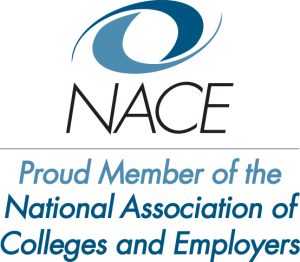Finding Academic Success Inside and Outside of Class
School can be challenging – sometimes the classes are difficult but sometimes even showing up to class is difficult – and the success of other students can appear to be effortless. The key to academic success is to understand that your learning is a skill that you can develop and to realize that the good habits you see in others weren’t perfected in a day. There are skills you can start developing now to be academically successful inside and outside of your classes – below are some ideas to get you started.
Academic Success in Class
Academic success in class means giving yourself the best opportunities to succeed. This, of course, includes basic ideas like showing up for class and doing your assigned work to the best of your ability. If you find yourself academically frustrated because you do show up but you aren’t achieving the results you want, try some of these ideas:
Writing Down and Understanding the Material
Note-taking is a nearly essential skill to develop, especially within higher education. You’ll often find that each class covers too much material for you to remember and, without note-taking, you might find paying attention difficult in the first place. Taking notes forces you to pay attention and process the course material. It also can give you insight into the professor’s thought process – have you ever read something in the book and then found the material to be different on the test? These aspects of the class are often covered in lecture and note-taking will help you detect those nuances.
Ask questions…
Of the professor:
When students think of asking questions, they often think of asking the professor to clarify information or asking a classmate to catch them up. These are good things to do, but you can ask questions in many different ways. One of the best ways to get involved with the material is to ask questions that connect ideas or extend concepts farther. Depending on the level of class you’re in, these are the type of questions that stimulate and grow class discussion. It also shows the professor that you’re processing the course content, and you’re helping your classmates do the same. If you find that you have a lot of questions about the material, you might follow up with the professor during his or her office hours. Not many students take advantage of office hours, but that one-on-one time with your professor is a huge benefit to taking a class.
Of your classmates:
Your classmates are a valuable resource, but they may grow frustrated with you if you are asking them questions during class or about the information you could answer for yourself. Instead, you should invite your classmates to study with you. Sharing your knowledge and questions with one another is a powerful way we can grow and solidify our understanding. Often people will see and understand information differently so by sharing those perspectives each person develops a sophisticated view of the subject.
Of yourself:
You should always be asking yourself questions. Do you understand the material? If not, where can I find answers to my questions? If I look something up online, how do I know whether that information is accurate? How do I know whether I have studied the material well enough to succeed on the test? Becoming your own teacher is a huge resource and skill not only in school but also in life.
Practice, Rehearse and Share
How you study for a class varies a lot between people. Some people do all the assigned reading, practice new problems, and ask their friends questions about everything they read. Others will never open a textbook in college. Some students find taking notes on their notes very effective. You might also take what you’ve learned and explain it to someone else as if you were the professor. Or you might just try new problems until the concepts finally stick. Ultimately, your goal is to develop an understanding of the course material that lets you succeed on your assessments and maintain a strong foundation for whatever class comes next. If you find yourself frustrated with one method then try another – there’s no single right way to study, but you should study yourself to understand what makes you the most successful.
Academic Success Outside of Class
Academic success outside of class means understanding yourself, your goals, and your obligations well enough to set yourself up for success in any class and across the broader academic goal of obtaining a degree and becoming employed.
You Are Your Own Class
Okay, maybe you don’t have a course ID number, but you should always remain aware of how you’re doing. Like inside of class, you should ask yourself questions and evaluate your abilities and achievements from time-to-time. You should ask yourself some bigger picture questions:
- Who are you?
- Do you know what you want to do?
- What are your interests?
- Do you know your strengths and weaknesses?
- Can you list out your goals?
You should expose yourself to resources and experiences that will help you along the way. Knowing your interests can help you guide your academic and professional career. You might take a test that says, “You should be a forest ranger,” but maybe that isn’t a realistic option for you. That result might just indicate that you like the outdoors and have a passion for the environment, and you can find ways to incorporate those interests in whatever you do.
Planning Ahead and Planning Backward
A common trap students fall into is losing track of their class obligations. These include not only when the class is, when your assignments are due, or when your tests are, but also how each class schedule interacts with the other, your personal life, and how much time you need to prepare for class. If you don’t already use a calendar, start one now. Calendars aren’t just for tracking due dates; they’re for seeing what’s coming up so you can plan what you need to do now. Giving yourself the time you need to be successful is immensely valuable.
Give Yourself The Best Chance to Succeed
Self-care is critical. You might be the smartest student, the hardest worker, or the most engaged in a subject, but if you don’t take care of yourself, you’ll find success harder and harder to achieve. Self-care includes getting enough sleep, eating well, exercising, and spending time with others. Always make time for yourself, which includes your mental health and your physical health.
In Conclusion
Finding success in academics can seem overwhelming. If you’re willing and motivated to try new skills and think of your learning in new ways, you’ll be well on your way to success. Give yourself the best opportunity to succeed, learn from yourself, and don’t be afraid to grow in new ways.
-1.png?width=288&height=67&name=PathwayU_PGLogo%20(1)-1.png)



